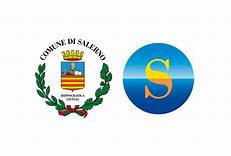Vegetarian Food
Today, when food has become so available, people often consume harmful products. However, more and more persons begin to think about what they eat and what the consequences of their choice are. Nowadays the amount of those who prefer vegetarian food to non-vegetarian one has significantly increased. The following sequence essay https://primeessays.com/sequence-essay-writing.html will show both positive and negative effects of vegetarian food. This will help understand why vegetarian food consumption is better than non-vegetarian one.
Many studies have shown that vegetarians usually live longer than meat-eaters; moreover, they have a lower risk of getting cardiovascular diseases. Numerous studies have confirmed the existing connection between meat consumption and heart diseases. Experts from the Harvard School of Public Health conducted 20 studies. They discovered that if a person eats 50 grams of red meat a day, the risk of cardiovascular disease increases by forty two per cent. Heart diseases are the most common reason of death. Consequently, excluding the food that facilitates cardiovascular diseases seems quite reasonable for people who care about their health.
One of the most popular benefits of a vegetarian diet is losing weight. It is well-known that modern Americans often suffer from overweight. Most vegetarian products do have fewer calories in comparison with animal food. However, such vegetarian products as peanut butter are rather fat – that should be taken into consideration. Additionally, the way of processing is of importance. For instance, if one consumes chips, ketchup, and crackers, it is worse for the body than boiled chicken. Consequently, ‘vegetarian’ does not always equals ‘healthy.’
Another important argument supporting vegetarian way of life concerns animal protection. Sometimes, people stop eating meat only because of this moral reason: they simply feel guilty of stealing a living creature’s life while there are plenty of other ways to fill one’s stomach. Thousands of years ago, people had to hunt because otherwise they could starve to death. Today, however, food market offers a fantastic variety of food products available to everyone. Thus, there is no need to eat meat only because the men of the tribe have just killed a mammoth. Having seen how the cattle are killed, many people cannot eat meat anymore. Vegetarian activists often use slaughter videos for their pro-vegetarian campaign.
However, there are some concerns regarding the impact of vegetarian food on human health. Firstly, people who do not eat meat have a considerable lack of vitamins of group B. These vitamins are necessary for the nervous system. Nevertheless, there is a simple solution: one can take vitamin B in pills to compensate this drawback of vegetarian food. Secondly, meat contains proteins that are so important for us because they facilitate cell growth and repair. Consequently, vegetarians should eat products containing protein, such as green peas, nuts, nut butter, quinoa, beans, chickpeas, edamame, leafy greens, chia seed, sesame or sunflower seeds, and cocoa powder. The next concern has a relation to vegan diet – the lack of calcium. Veganism requires that no animal food, including milk and eggs, should be eaten. However, dairy products are the source of calcium; the latter is well-known for its impact on teeth, hair nails, and bones. Additionally, human body needs calcium because it is useful for nerve and muscle function, and blood clotting. In order to save one’s hair and bones, it is necessary to compensate calcium deficiency. The simplest solution is to take calcium in the form of tablets. For those people who prefer natural sources of calcium, there are products that contain it. Among leaders in calcium respect, one could choose blackstrap molasses, collard and turnip greens, and plant milk. Nowadays, when food industry is so well developed, calcium can be found in commercial soy yoghurt, calcium-fortified orange juice, and tofu, processed with nigari or calcium sulphate. Other products containing calcium include kale, soybeans, and almond butter. Consequently, there is no problem with getting calcium from vegetarian products.
The last issue regarding vegan diet concerns fish. It is well-known that fish contains Omega-3 fatty acids. They take part in cell membranes formation and are useful for the effective functioning of the brain and nervous system. Although fish is considered to be a perfect source of this element, some vegetarian sources can be effective fish substitutes in this respect as well. For instance, flaxseed contains a great amount of omega-3 fatty acids. Flaxseed oil is often used by those who suffer from various stomach diseases. Furthermore, it is available at any supermarket. Nuts and beans are also the sources of omega-3 fatty acids. Various leafy green vegetables – broccoli, cabbage, and Brussels sprouts – also contain this useful element.
The current research shows that vegetarian food can be really healthier than casual food because of many reasons. Firstly, animal fat is bad for the cardiovascular system. Secondly, animal food eaters are usually more likely to suffer from obesity than vegetarians. Thirdly, vegetarians often live longer compared to non-vegetarians. However, there are several vitally important factors that should be taken into consideration. Animal food contains such significant elements as proteins, calcium, omega-3 fatty acids, and vitamin B. That is why, if a person does not consume animal food, it is necessary to compensate these elements and use vegetarian sources, such as beans, nuts, cabbage, and many vegetarian products. Furthermore, one should consider the way the food is cooked: chips and ketchup are by no means healthier than boiled meat.
